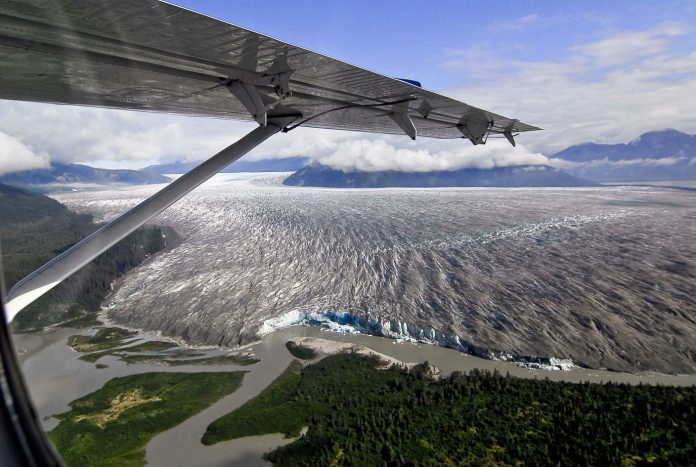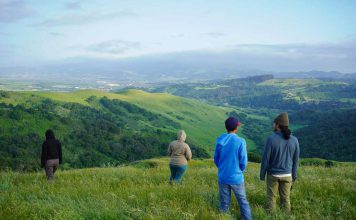
It is apparently mandatory during every conversation about ocean cruises that each person declare whether or not they are a “cruise person.” At least it appears that way based on my experience. Though I suspected I was not a cruise person, I wasn’t sure since I had never been on one. I just knew that if I wanted to see Alaska’s Inside Passage, it would be on a cruise—and I definitely wanted to see the Inside Passage.
The Inside Passage is a coastal ocean route that snakes through 1,000 islands along southeastern Alaska, a long panhandle of land that separates much of British Columbia from the ocean. Nearly the entire voyage is through calm waters. The islands protect the Inside Passage from most of the ocean turmoil that can upset sea-sensitive stomachs.
At Ketchikan, our first stop, the Inside Passage really begins. During our visit, the town fulfilled its rainy reputation (Ketchikan Rain Festival: Jan. 1-Dec. 31). We searched the city streets until we found the boyhood home of my uncle, then we walked along charming historic (and touristy) Creek Street where my uncle said he delivered groceries to “the girls” until he left for the war in 1943.
Next stop: Juneau. Smaller than Gilroy or Morgan Hill, Juneau is Alaska’s third largest city and the only state capital inaccessible by car. The remote location of the capital city has always been controversial. In the 1970s, the voters of Alaska approved moving the capital to a location near Anchorage, but opponents of the move ultimately prevailed when funding issues halted the project.
Just over the hill from Juneau lies the southern end of the Juneau Icefield, 1,500-square-miles of ice that reaches nearly to Skagway 100 miles north. My wife Rene and I had booked an excursion that flew us over five of the 40 large valley glaciers that comprise the icefield. The size and beauty of this massive reach of ice is indescribable. All sense of scale was lost as we looked down on huge rivers of ice twisting through the mountains in an elegant manner that belied their crushing power. Just one of the glaciers we flew over, Taku Glacier, is five-miles-wide, 36-miles-long and is said to be nearly 5,000-feet-thick—the thickest glacier on earth. Here and there, a tangled jumble of house-sized ice seracs reflected an indescribably luminous blue light. If ever you go, don’t miss this side trip.
Still northbound, we sailed up the Lynn Canal where the Inside Passage dead ends at Skagway. Though the Klondike Gold Rush of 1888-89 was in Canada’s Yukon Territory, the shortest route to the goldfields was through Alaska. You have probably seen photos of an endless line of heavily-burdened men climbing the steep snow-covered Chilkoot Pass that left from Dyea, a long-gone port just over the hill from Skagway. Prospectors had to make this arduous trip a number of times in order to shuttle the one-year’s supply of food required by the Canadian government for entry into the territory. A second route from Skagway reached the Klondike over the longer, but less severe White Pass, which was spanned by a narrow gauge railroad in 1900. The advent of commercial cruises to Alaska resurrected the White Pass and Yukon Route Railway that now shuttles tourists along the scenic route to the pass.
From Skagway, Rene and I took a day-trip to the Davidson Glacier. When John Muir visited the glacier in 1879, it was a tidewater glacier that protruded all the way into the Chilkat Inlet. But today it takes a short drive and a half-mile canoe ride across a silt-clouded glacial lake to reach the toe of the ice. It was a rare treat to spend time walking on this glacier and seeing it up close. At the terminus, a yawning azure cave shed water and chunks of ice. Upslope, huge seracs reached skyward, while at our feet rushing rills of water hinted at the glacier’s continuing retreat.
I’ve decided I’m not a genuine cruise person, but I definitely am an Inside Passage person. Excursions from Alaska cruises are not cheap, but this is no time for thrift. Once-in-a-lifetime sights await.












